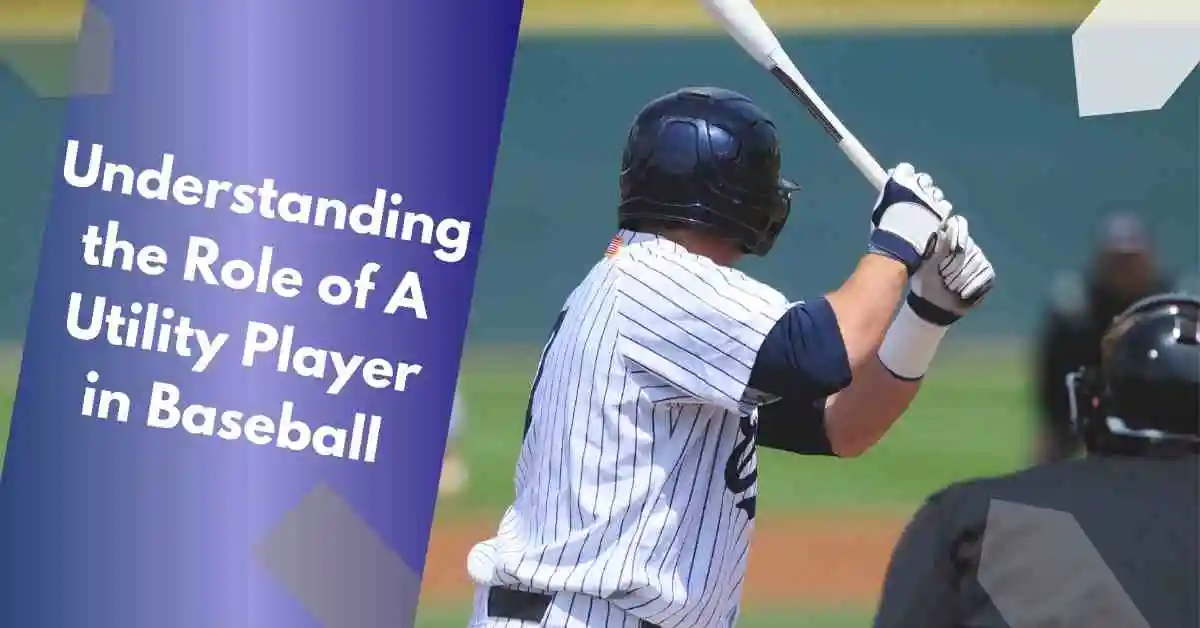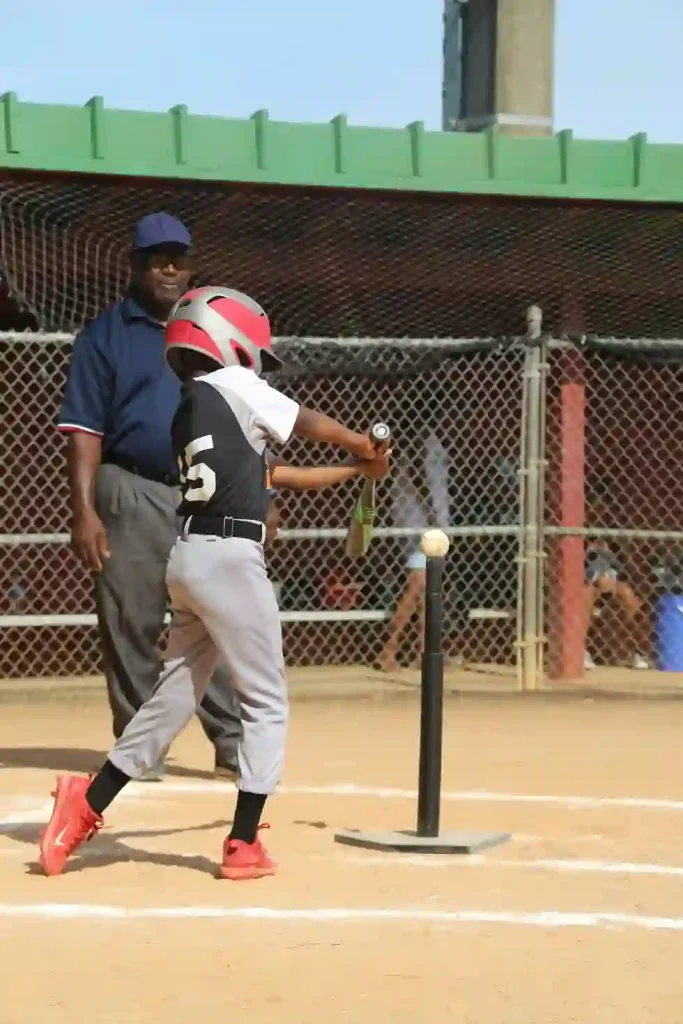
The baseball game comprises specialised positions (pitcher, catcher, shortstop), etc. However, there’s one specific kind of player who doesn’t strictly fit into these more conventional boxes – the utility player. What is a utility player in baseball, though? A true utility player steps into various positions on the field, which can add tremendous value to their team. These guys are versatile, whether serving as a fill-in for an injured starter or simply filling in a gap in the lineup.
Here, we discover the role of a utility player in baseball, discussing everything related to what utility players do and why they are essential. We will also explore different terms related to this concept, including utl meaning ,utility position baseball and what is a utility player in softball. So now, let’s break down utility player meaning and what a utility player brings to a team.
Role of a Utility Player in Baseball:
A player who can fill in and play multiple positions as needed is known as a utility player. That can mean infield positions such as second base or shortstop, or outfield spots such as left or right field. Utility player baseball is all about versatility, allowing the team to keep the lineup intact despite injuries or a need for a tactical change.
What Does Util Mean in Baseball?
Players designated with the abbreviation “UTIL” on baseball rosters are usually utility players. So, what does util mean? It’s just a shorthand for “utility” and shows that the player is versatile enough to play several positions. Getting UTIL next to a player’s name means that this player is not committed to a single place on the field.
Utility Position Baseball: The Versatile Role
Being a utility player is critical in baseball because ensuring your team has depth and versatility is vital. A utility player does not only play a single position. They might switch between playing third base and shortstop, or even get a few at-bats in the outfield during a season. Their most fundamental contribution is their flexibility. Utility players in baseball often play a versatile role, perfect for when the team needs relief at first base or if a player needs to substitute as a pinch hitter.
What Is a Utility Player in Softball?
The idea of a utility player is not limited to baseball. So, a utility player in softball is someone who plays multiple positions so that the team gains more versatility. These guys, like in baseball, are worth their weight in gold for their ability to fill many roles as the situation presents itself.
All You Need to Know about the Utility Man and Its Evolution in Baseball
The role of the utility man baseball has changed for the better. Utility players were once considered backup players, but they have become vital pieces of many MLB teams, which means that utility players have become an increasingly important part of every 162-game roster, with the demands for flexibility and depth growing ever more the case as the season weather wears on. These players can often do both: they tend to have the skills to play infield and outfield, and their versatility can help teams weather injuries, off-days and fatigue through long seasons.For more on how players adapt through long seasons, check out how long is a baseball game
The Importance of Utility Players:
As the saying goes, “The utility player kills two birds with one stone”: These athletes provide the needed depth and versatility on the team to adapt managers to the dynamic nature of game situations. Utility players can play multiple positions, thus providing balance and potentially improving the chances of a team becoming a threat by lessening the danger of tiring regular starters. Versatile players give a team a significant advantage, particularly when injuries hit.

History of Cubs Utility Players: A Model in Flexibility
When you think about the Cubs utility players, you probably think about Ben Zobrist or Javier Báez, who added significant versatility to the Chicago Cubs’ roster. Someone like Zobrist would have made a seamless transition if the Cubs had needed to give anyone in the outfield, second base, or even shortstop a night off. That ability to thrive in a variety of roles is a godsend for a team like the Cubs, who may want or need to make substitutions or give starters some time to rest without suffering as a result.
Utility Infielders: A More Specialized Type of Utility Player
A few of the utility players have been identified as utility infielders, which means they play infield positions. Whether they are playing second base, third base or shortstop, these players are important when a team’s regular infielders need a breather or are fighting off injuries. For a team’s general performance, a utility infielder’s ability to switch between positions without a hitch is critical.

What is the purpose of a utility baseball glove?
A utility glove is for players who switch around between multiple positions. These gloves are usually more versatile than the regular glove, providing features that help the player perform well whether they’re playing in the outfield or the infield. The utility baseball glove is designed specifically for these types of players, allowing them to transition seamlessly into different roles on the field without losing performance.
Utility Players Who Would Surprise You:
A ton of random MLB players have made a name for themselves. Among the most renowned utility players in recent MLB seasons are Chris Taylor, Marwin González, and Ben Zobrist. These players have proven the worth of utility players who can flourish in multiple positions. Although these players may not receive the same attention as everyday starters, they are usually the key with the steadiness and versatility.
The Value of Utility Players in Modern Baseball:
The utility player’s role has also changed, as baseball has evolved. Teams are looking for players’ flexibility, as juggling the roster over a long season can be challenging. Allowing for positional switching and filling in where another player may go down with injury serves teams strategically. It isn’t about finding a good hitter or fielder anymore; it’s about finding players who can do both.

Why Utility Players Are Important to Team Success:
Mental and physical adaptability is one of the most significant factors for the utility player. They must excel at various positions and know the game’s strategy and timing intimately. Utility players make teams more agile — seamlessly, whether replacing an injured starter or emerging as an option for a late-game substitution or offering a fresh perspective when on the field.
Conclusion:
In baseball, a utility player is the pinnacle of versatility, availability, and adaptability. These players also let teams be flexible throughout the season, filling in multiple positions as necessary with outfielders who can all hit. Utility players are vital to any roster, whether filling in for an injured player or adding depth over a long season. So, what a utility player in baseball is explains to us how vital these types of players are and the role they play in ensuring their teams get wins.
FAQs:
What is a utility player in baseball?
In baseball, a utility player can play several positions, varying from infield to outfield positions, depending on the team’s needs.
Can a Utility Player Turn Into a Regular Starter?
As such, a utility player might become a regular starter on a team, should they shine in numerous roles and succeed.
What’s the distinction between a utility player and a full-time starter?
Utility players can play multiple positions, while a regular starter is assigned to one position.
What does UTIL mean in baseball?
UTIL — Utility player, someone who can play multiple positions, providing depth and flexibility to a roster.
Is there a value in having utility players on a baseball team?
Utility players serve an important role, giving a team flexibility and depth to overcome injuries and fatigue without sacrificing performance.
